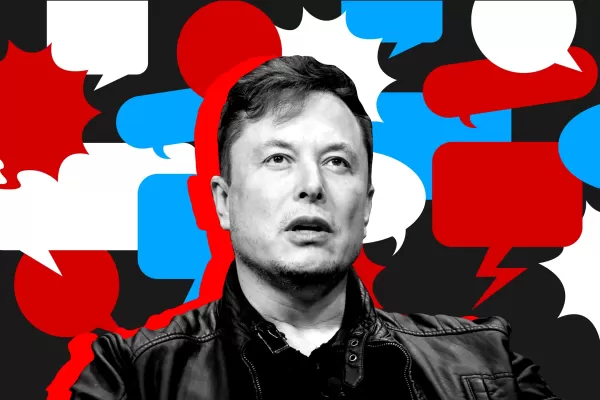Gemini Enhances Care in Japanese Hospitals
Before joining Ubie, a health tech startup in Japan that leverages AI to revolutionize patient experiences and streamline healthcare operations, I worked as a neurologist. The sheer volume of clinical duties and the endless paperwork, often handwritten, left me feeling overwhelmed. I constantly worried about how this affected the quality of care and attention I could provide to my patients. This concern drove me to join Ubie.
At Ubie, our mission is to enable healthcare professionals to focus on what truly matters: spending quality time with their patients. We aim to make administrative tasks, such as inputting medical records and writing referrals, more efficient.
Currently, we're developing products that incorporate Google's Gemini models, which we fine-tune on Google Cloud's Vertex AI platform, for use in real-world clinical environments. Our collaboration with Google allows us to customize these sophisticated models to grasp the unique aspects of Japanese healthcare. This customization enables the AI to assist doctors and nurses with voice recognition and summarization, significantly easing the burden of creating numerous discharge summaries, referral letters, and informed consent documents.
Our efforts are already yielding results in medium- to large-sized hospitals in rural Japan:
- At Keiju General Hospital, our AI-powered discharge summary tools have cut the time nurses spend on these tasks by 42.5% and reduced their psychological burden by 27.2%. Notably, the impact was most pronounced for longer hospital stays, where the cognitive load on nurses is higher.
- At Yokokura Hospital in Kyushu, the implementation of voice transcription and summarization features, powered by Gemini, has improved the efficiency of documenting patient explanations by 33%.
- During a trial at Kyushu University Hospital, one of Japan's largest hospitals, the use of our technology for summarizing and standardizing referral letters resulted in a 54% efficiency increase for doctors preparing admission summaries.
These improvements allow healthcare professionals to dedicate more time to their patients, directly enhancing the quality of care—something that motivated me to become a doctor in the first place.
Efficiency in healthcare is crucial in Japan, where an aging population and a diminishing workforce pose significant challenges. Additionally, finding administrative staff, particularly in rural areas, is difficult, adding to the operational strain on hospitals. AI has the potential to be a game-changer, alleviating some of these pressures and fundamentally changing how we work and care for our patients.
[ttpp] [yyxx]
[yyxx]
Related article
 YouTube Integrates Veo 3 AI Video Tool Directly Into Shorts Platform
YouTube Shorts to Feature Veo 3 AI Video Model This SummerYouTube CEO Neal Mohan revealed during his Cannes Lions keynote that the platform's cutting-edge Veo 3 AI video generation technology will debut on YouTube Shorts later this summer. This follo
YouTube Integrates Veo 3 AI Video Tool Directly Into Shorts Platform
YouTube Shorts to Feature Veo 3 AI Video Model This SummerYouTube CEO Neal Mohan revealed during his Cannes Lions keynote that the platform's cutting-edge Veo 3 AI video generation technology will debut on YouTube Shorts later this summer. This follo
 Google Cloud Powers Breakthroughs in Scientific Research and Discovery
The digital revolution is transforming scientific methodologies through unprecedented computational capabilities. Cutting-edge technologies now augment both theoretical frameworks and laboratory experiments, propelling breakthroughs across discipline
Google Cloud Powers Breakthroughs in Scientific Research and Discovery
The digital revolution is transforming scientific methodologies through unprecedented computational capabilities. Cutting-edge technologies now augment both theoretical frameworks and laboratory experiments, propelling breakthroughs across discipline
 Elon Musk's Grok AI Seeks Owner's Input Before Tackling Complex Queries
The recently released Grok AI—promoted by Elon Musk as a "maximally truth-seeking" system—has drawn attention for its tendency to consult Musk's public statements before responding to politically sensitive topics. Observers note that when addressing
Comments (18)
0/200
Elon Musk's Grok AI Seeks Owner's Input Before Tackling Complex Queries
The recently released Grok AI—promoted by Elon Musk as a "maximally truth-seeking" system—has drawn attention for its tendency to consult Musk's public statements before responding to politically sensitive topics. Observers note that when addressing
Comments (18)
0/200
![PaulThomas]() PaulThomas
PaulThomas
 August 12, 2025 at 5:00:59 AM EDT
August 12, 2025 at 5:00:59 AM EDT
This article about AI in Japanese hospitals is super cool! 😎 It’s wild to think how tech like Gemini can cut down on all that paperwork stress. I wonder how patients feel about AI guiding their care—kinda futuristic, right?


 0
0
![AndrewHernández]() AndrewHernández
AndrewHernández
 August 9, 2025 at 5:00:59 AM EDT
August 9, 2025 at 5:00:59 AM EDT
This article about AI in Japanese hospitals is super intriguing! 😮 It's wild to think how much time doctors could save with tools like Gemini. I wonder if it'll make healthcare more accessible or just create new tech headaches?


 0
0
![AnthonyHill]() AnthonyHill
AnthonyHill
 July 27, 2025 at 9:19:30 PM EDT
July 27, 2025 at 9:19:30 PM EDT
This article on Gemini's AI in Japanese hospitals is eye-opening! As someone in healthcare, I can relate to the paperwork struggle. It's wild to think AI could free up so much time for doctors to actually focus on patients. Excited to see where this tech goes! 😊


 0
0
![PaulTaylor]() PaulTaylor
PaulTaylor
 April 21, 2025 at 2:28:08 PM EDT
April 21, 2025 at 2:28:08 PM EDT
Gemini realmente transformó mi trabajo en el hospital. ¡Es como tener un par de manos extra para lidiar con todo el papeleo! La precisión del AI al entender mis garabatos es impresionante, aunque a veces pierde los matices. Aún así, ¡un gran ahorro de tiempo! 😊


 0
0
![PaulBrown]() PaulBrown
PaulBrown
 April 21, 2025 at 9:51:24 AM EDT
April 21, 2025 at 9:51:24 AM EDT
ジェミニのおかげで病院での仕事が劇的に変わりました!書類仕事を手伝ってくれるもう一つの手を持つようなものです。私の落書きを正確に理解するAIの精度は素晴らしいですが、時々ニュアンスを逃すことがあります。それでも、大きな時間の節約になります!😊


 0
0
![PaulGonzalez]() PaulGonzalez
PaulGonzalez
 April 21, 2025 at 7:20:59 AM EDT
April 21, 2025 at 7:20:59 AM EDT
Gemini really transformed my work in the hospital! It's like having an extra pair of hands to deal with all the paperwork. The AI's accuracy in understanding my scribbles is impressive, though sometimes it misses the nuances. Still, a huge time-saver! 😊


 0
0
Before joining Ubie, a health tech startup in Japan that leverages AI to revolutionize patient experiences and streamline healthcare operations, I worked as a neurologist. The sheer volume of clinical duties and the endless paperwork, often handwritten, left me feeling overwhelmed. I constantly worried about how this affected the quality of care and attention I could provide to my patients. This concern drove me to join Ubie.
At Ubie, our mission is to enable healthcare professionals to focus on what truly matters: spending quality time with their patients. We aim to make administrative tasks, such as inputting medical records and writing referrals, more efficient.
Currently, we're developing products that incorporate Google's Gemini models, which we fine-tune on Google Cloud's Vertex AI platform, for use in real-world clinical environments. Our collaboration with Google allows us to customize these sophisticated models to grasp the unique aspects of Japanese healthcare. This customization enables the AI to assist doctors and nurses with voice recognition and summarization, significantly easing the burden of creating numerous discharge summaries, referral letters, and informed consent documents.
Our efforts are already yielding results in medium- to large-sized hospitals in rural Japan:
- At Keiju General Hospital, our AI-powered discharge summary tools have cut the time nurses spend on these tasks by 42.5% and reduced their psychological burden by 27.2%. Notably, the impact was most pronounced for longer hospital stays, where the cognitive load on nurses is higher.
- At Yokokura Hospital in Kyushu, the implementation of voice transcription and summarization features, powered by Gemini, has improved the efficiency of documenting patient explanations by 33%.
- During a trial at Kyushu University Hospital, one of Japan's largest hospitals, the use of our technology for summarizing and standardizing referral letters resulted in a 54% efficiency increase for doctors preparing admission summaries.
These improvements allow healthcare professionals to dedicate more time to their patients, directly enhancing the quality of care—something that motivated me to become a doctor in the first place.
Efficiency in healthcare is crucial in Japan, where an aging population and a diminishing workforce pose significant challenges. Additionally, finding administrative staff, particularly in rural areas, is difficult, adding to the operational strain on hospitals. AI has the potential to be a game-changer, alleviating some of these pressures and fundamentally changing how we work and care for our patients.
[ttpp] [yyxx]
[yyxx]
 YouTube Integrates Veo 3 AI Video Tool Directly Into Shorts Platform
YouTube Shorts to Feature Veo 3 AI Video Model This SummerYouTube CEO Neal Mohan revealed during his Cannes Lions keynote that the platform's cutting-edge Veo 3 AI video generation technology will debut on YouTube Shorts later this summer. This follo
YouTube Integrates Veo 3 AI Video Tool Directly Into Shorts Platform
YouTube Shorts to Feature Veo 3 AI Video Model This SummerYouTube CEO Neal Mohan revealed during his Cannes Lions keynote that the platform's cutting-edge Veo 3 AI video generation technology will debut on YouTube Shorts later this summer. This follo
 Google Cloud Powers Breakthroughs in Scientific Research and Discovery
The digital revolution is transforming scientific methodologies through unprecedented computational capabilities. Cutting-edge technologies now augment both theoretical frameworks and laboratory experiments, propelling breakthroughs across discipline
Google Cloud Powers Breakthroughs in Scientific Research and Discovery
The digital revolution is transforming scientific methodologies through unprecedented computational capabilities. Cutting-edge technologies now augment both theoretical frameworks and laboratory experiments, propelling breakthroughs across discipline
 Elon Musk's Grok AI Seeks Owner's Input Before Tackling Complex Queries
The recently released Grok AI—promoted by Elon Musk as a "maximally truth-seeking" system—has drawn attention for its tendency to consult Musk's public statements before responding to politically sensitive topics. Observers note that when addressing
Elon Musk's Grok AI Seeks Owner's Input Before Tackling Complex Queries
The recently released Grok AI—promoted by Elon Musk as a "maximally truth-seeking" system—has drawn attention for its tendency to consult Musk's public statements before responding to politically sensitive topics. Observers note that when addressing
 August 12, 2025 at 5:00:59 AM EDT
August 12, 2025 at 5:00:59 AM EDT
This article about AI in Japanese hospitals is super cool! 😎 It’s wild to think how tech like Gemini can cut down on all that paperwork stress. I wonder how patients feel about AI guiding their care—kinda futuristic, right?


 0
0
 August 9, 2025 at 5:00:59 AM EDT
August 9, 2025 at 5:00:59 AM EDT
This article about AI in Japanese hospitals is super intriguing! 😮 It's wild to think how much time doctors could save with tools like Gemini. I wonder if it'll make healthcare more accessible or just create new tech headaches?


 0
0
 July 27, 2025 at 9:19:30 PM EDT
July 27, 2025 at 9:19:30 PM EDT
This article on Gemini's AI in Japanese hospitals is eye-opening! As someone in healthcare, I can relate to the paperwork struggle. It's wild to think AI could free up so much time for doctors to actually focus on patients. Excited to see where this tech goes! 😊


 0
0
 April 21, 2025 at 2:28:08 PM EDT
April 21, 2025 at 2:28:08 PM EDT
Gemini realmente transformó mi trabajo en el hospital. ¡Es como tener un par de manos extra para lidiar con todo el papeleo! La precisión del AI al entender mis garabatos es impresionante, aunque a veces pierde los matices. Aún así, ¡un gran ahorro de tiempo! 😊


 0
0
 April 21, 2025 at 9:51:24 AM EDT
April 21, 2025 at 9:51:24 AM EDT
ジェミニのおかげで病院での仕事が劇的に変わりました!書類仕事を手伝ってくれるもう一つの手を持つようなものです。私の落書きを正確に理解するAIの精度は素晴らしいですが、時々ニュアンスを逃すことがあります。それでも、大きな時間の節約になります!😊


 0
0
 April 21, 2025 at 7:20:59 AM EDT
April 21, 2025 at 7:20:59 AM EDT
Gemini really transformed my work in the hospital! It's like having an extra pair of hands to deal with all the paperwork. The AI's accuracy in understanding my scribbles is impressive, though sometimes it misses the nuances. Still, a huge time-saver! 😊


 0
0





























